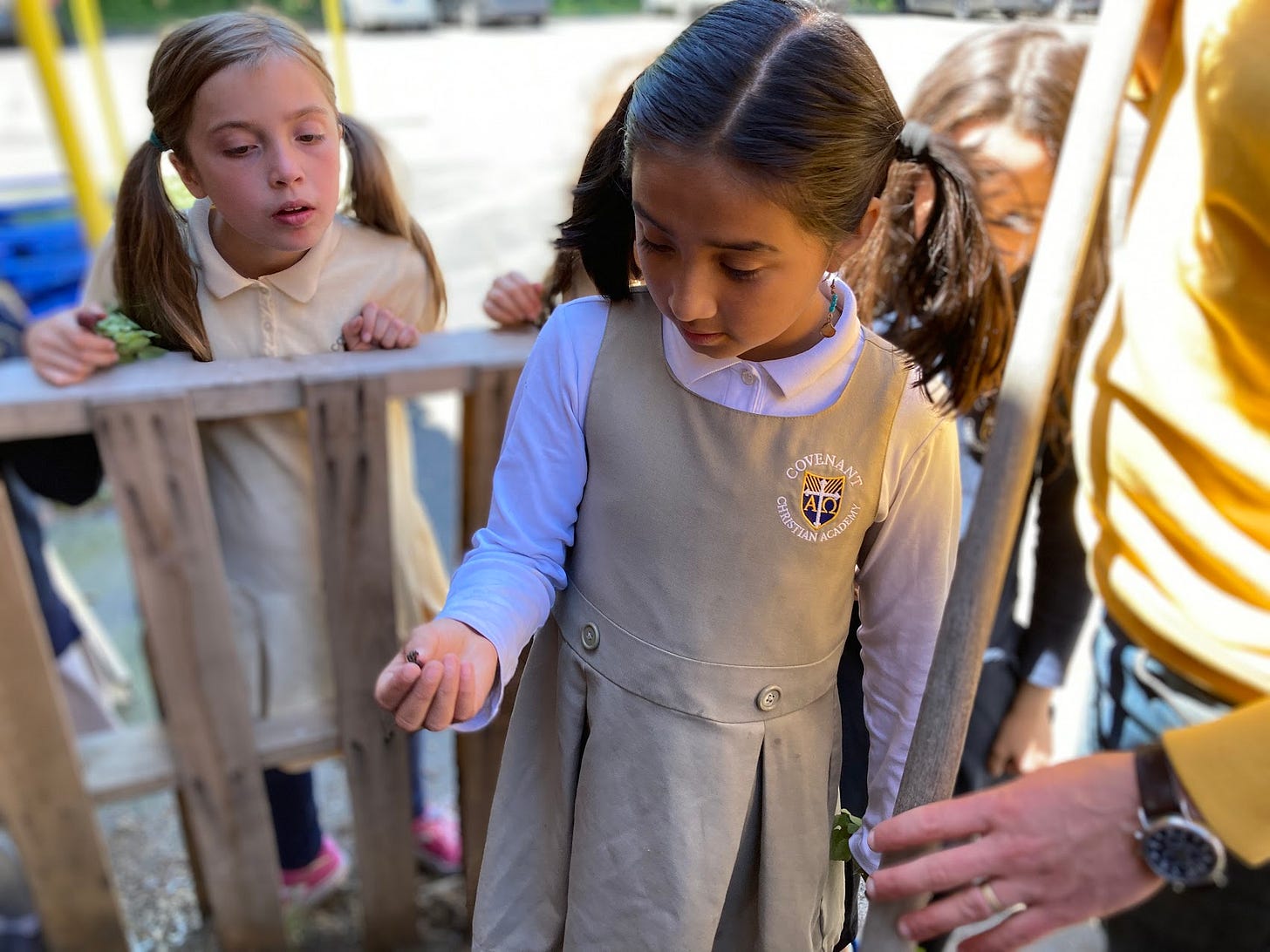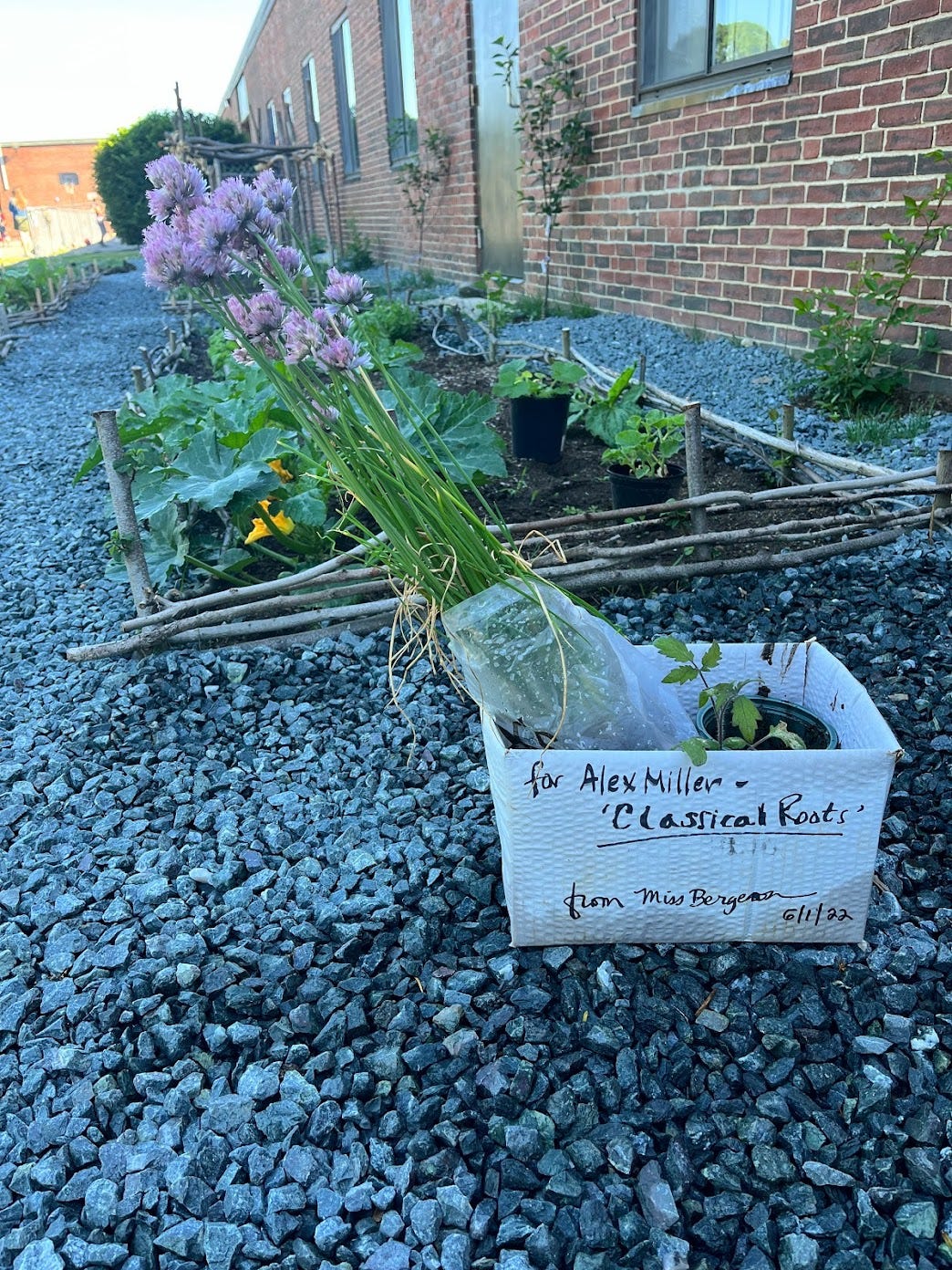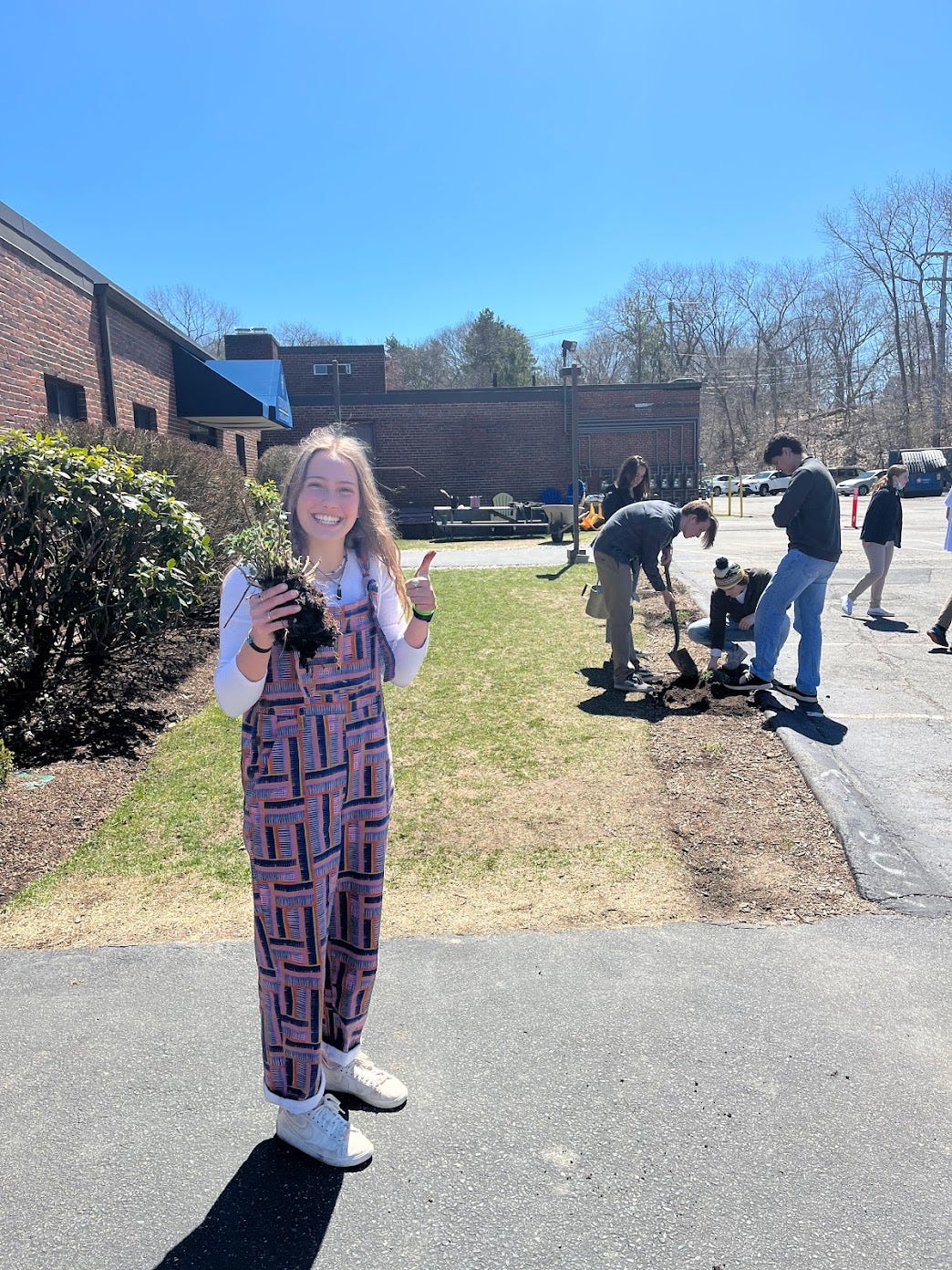Anxiety
It turns out that the peaceful effects of gardening are not the result of whimsical feelings but of biological facts.
When despair for the world grows in me… I come into the peace of wild things ―Wendell Berry
This morning I realized that I’ve unconsciously developed a habit. I’m not sure when it started. Every day before school I find myself taking a walk through the garden. Part of the cause, I think, is simply the old gardener’s desire to “check up on things,” pulling a weed here, adjusting a trellis there, fiddling and fussing. But if I’m being honest, there is generally nothing urgent that needs to be accomplished at that time of day. No, I think that what really draws me there is the calming effect of simply being present in a garden. Walking the crisp paths, smelling the cherry blossoms or the menthol musk of catmint when the wind blows through it, getting my hands in the dirt, or sampling a leaf from the arugula, all of that somehow renders me more prepared to face the day’s vicissitudes and responsibilities.
Obviously, I am not the only one who associates these feelings with gardens. The student leaders of the Classical Roots Program ask me every almost day if there is anything in the garden that needs doing. When I reply no, which does occasionally happen, they’re crestfallen. And sometimes I find they have ignored me altogether and snuck out to do some weeding or raking during a free period anyway. The task of gardening, once we learn a bit about how to do it, seems to exert a kind of gravity on most people. It feels like a natural extension of the human experience, an experience that increasingly leaves us longing for the order, growth, and sense of accomplishment that gardens so readily provide.
Until recently, most gardeners probably believed that this calming effect was a matter of personal disposition, or at least of healthy discipline. Gardening, we thought, calmed us down because raising plants was a habit that got us going outdoors, soaking up some Vitamin D, and eating a little better. But, during the last decade, biologists have discovered that the microbial life found in garden soil actually creates calming chemical responses in the human brain when we come in contact with it. So, it turns out that the peaceful effects of gardening are not the result of whimsical feelings but of biological facts.
This discovery feels especially poignant to me in light of the exponential spike in mental health issues experienced by high school students since the pandemic. Modern young people are more anxiety-ridden, more doubtful, and more grim in their outlook than any generation in recent history. And, as a teacher, I do not believe I am alone in feeling that my typical array of resources is somehow inadequate to meet my students’ rising needs. It is hard not to feel like the whole situation has grown beyond the pale. And when I started the Classical Roots Program, I did not think of it as any sort of answer to those needs. But it has become one. Quietly at first, but then increasingly and now profoundly, our garden is drawing the students toward itself. There is something on offer, partly biological but also partly spiritual, lying latent in the soil. Peace, perhaps, and several kinds of nourishment. If you are reading this and wondering whether your school should do something similar, the answer is yes, you should. You should do so as soon as you can. Your school counselor will thank you for it. And even if they don’t, it will make a great place for a morning walk.




